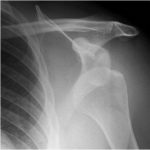 Arthroscopic expert, Dr. Steven Chudik, cites prompt treatment, thorough evaluation and physical therapy as key factors to successful return from shoulder dislocation injury
Arthroscopic expert, Dr. Steven Chudik, cites prompt treatment, thorough evaluation and physical therapy as key factors to successful return from shoulder dislocation injury
Why do I have to arrive early?
Patients, especially those being seen for the first time, are asked to arrive early to complete the registration process which includes providing your pertinent health history, health insurance information and signing important documents that allows Dr. Chudik to treat you. Our patient care representatives attend to each patient which takes time so by arriving early you can complete the registration process without delaying your appointment or others.








